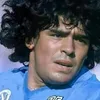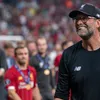Last week marked the tragic passing of one of the greatest sporting heroes on planet Earth -- Diego Maradona. Amidst the outpouring of grief that spanned the entire world, the life and exploits of the little Argentinian genius were revisited across many media platforms.
And while that made for some goose pimple inducing, adrenaline rushing moments, they also caused one to reflect on the legacy of Maradona. His was an influence which was latitude and longitude, even race and nation agnostic.
He was someone who ‘started up’ a love affair with the beautiful game for billions the world over. It would then not be surprising there were extremely pertinent insights from his tale, which entrepreneurs could also be inspired from; if only to score their own outstanding goals.
Bank heavily on your strengths
Maradona was extremely left-footed. That’s a bit of an understatement. His right leg was often humorously referred to as a prop which prevented him from falling while running. He was not the most physically strong of players. Nor was he really a force in the air when it came to heading the ball. But that left foot! It was the equivalent of Picasso’s brush on the field.
Wielding it with unmatched skill, none of his ‘weaknesses’ ever mattered. He was far from what the coaches would have co-created as the game’s ideal player. But he was arguably its most brilliant and effective one.
Lots of management folklore begins with frameworks like the ‘SWOT’ analysis. This brings organisational weaknesses to the fore. It often entails an urgency and responsibility on behalf of leadership to do something about these lacunae. It even begins to dwell on the minds of the think tank.
But great companies often, while taking cognizance of where they are lacking, overcompensate on their areas of strengths. They back themselves to make such an impression basis their core competencies, that their shortcomings will be put in the shade.
Eventually strategy is based on sacrifice; it comes into play because resources are limited. This is why focusing solely on one’s area of strength frequently makes more sense in business, especially during the bootstrapped times when starting out. It’s all about putting one’s best foot forward -- right or left doesn’t really matter.
Lead those around to greatness
What set Maradona apart from many soccer legends over the years, and those at present, was his ability to push those with him to greater performances. Both his Argentine team and his club side Napoli were not the strongest during his tenure. But he had this unique capacity to inspire team mates to stretch beyond their limits.
Argentina won the World Cup with him. Napoli was twice champions in the world’s most competitive league, during his stint there. It was not because they had a bunch of other stars around in those units. Lot of that was due to Maradona’s leadership gifts in rousing and catalysing his group so potently that the whole was always greater than the sum of the parts. Sometimes just by standing on the pitch, he could make all those around him appear better players.
And this is what founders at startups should really aspire towards. A lot of the initial success of a new venture is down to the capability of the founders to motivate their teams with an inspiring vision, a clear and exciting identification of opportunity, and the exhibition of a penchant for getting the best out of their people.
Human potential is one of those variables which can really escalate in value when nurtured under the right conditions. It can compensate for a shortfall in so many other areas.
Hence, it’s a small wonder, the success story of many a startup usually boils down to the charisma and leadership of the founders, and their tendency to get their teams to perform miracles under pressure. From the football pitch to the business boardroom, it is these kinds of captains that are needed to embark on the greatest triumphs.
Spring back from ‘mistakes’ quickly
Four minutes in the second half of an epic quarter final against England in the 1986 World Cup, perhaps represents an accurate microcosm of the Maradona story. First he deviously handled the ball past an onrushing English goalkeeper to pinch one of the competition’s most controversial goals of all time.
Then, four minutes later, maybe reflecting on what history would remember him by, Maradona embarked on a mesmerising run which left the entire English defense flatfooted, and resulted in him chalking up the greatest goal ever seen at the World Cup. If one moment of mischief threatened to scar his reputation forever, Maradona quickly tried to rectify it with a true moment of magic.
Errors are integral to the functioning of any organisation. They can happen despite one’s best efforts. They could span faults in processes, outcomes, policies, tactics and much more. But they are part of the story and need to be acknowledged, rather than be swept under the carpet. In fact, they offer great opportunities for building bridges.
Every mistake is a chance to reengage the customer, and win her back again by undertaking an action which rebuilds trust.
Think of how Johnson & Johnson recalled all their Tylenol products when news of contamination emerged. It entailed a loss in millions. But the quick action of the company, plus their public announcements of not reentering until the problem of tamper proof packaging had been comprehensively fixed, won the hearts of many. They made a comeback even stronger.
Falling down sometime is inevitable; it is in rising up quickly and more strongly that great organisations really make their name. And there’s no ‘hand of God’ involved in that.
Above all be genuine
Finally, it was sometimes strange for a casual observer of the sport, to fathom the kind of adulation Maradona enjoyed across the world. This was made even more intriguing given the fact that his exploits, especially off the pitch, could sometimes be politely termed as ‘anything but sporting’.
Watching Maradona play was a true theatrical experience; his myriad emotions were always apparent to the spectators. His various misdeeds beyond the pitch, his apparent lack of good judgment in social situations; all gave him an aura of imminent fallibility. But they also made him seem more human.
In a time where the blemishes of icons were getting ‘air brushed’ off the frame, and increasing commercial pressures were getting many celebrities and popular figures to toe the line of acceptability, here was someone who was unapologetically himself. Love him or hate him, one simply could not ignore him. He polarised opinion. There was something very real about him. And that perhaps explained the magnetic aura around him.
Howard Shultz, the former CEO of Starbucks, often used to talk about the need for business leaders to be ‘authentic’. This concept applies much beyond only people in elevated positions. Sure, employees look for bosses they can connect with, they seek an emotional resonance beyond just the job list, either consciously or unconsciously. But the same aspect applies to prospects trying to enter the workforce.
Often candidates try and mould themselves, to what they think the company culture of that organisation is, during the selection process. And yet, great careers are only built when one is truly oneself at the workplace. Finding such an organisation might be difficult. However, it makes all the more sense from a long term career perspective.
Entrepreneurs also do much better when they pick up a cause they genuinely care about, rather than one which only presents economic opportunity. This is because, as any venture capitalist would concur, it ensures their tenacity when things begin to get rough.
Put a little differently, they are far more likely to pick themselves up again and repeatedly, when conditions insist on kicking them around.
In the end, Maradona left some fond memories of brilliant skill and powerful presence. And as the final whistle blew on his life, he also kindled some other ideas, which might help every entrepreneur as they embark on their own solo runs. For them, the game is still very much on.
(Disclaimer: The views and opinions expressed in this article are those of the author and do not necessarily reflect the views of YourStory.)
Link : https://yourstory.com/2020/12/startup-lessons-el-diego-soccer
Author :- Vinay Kanchan ( )
December 04, 2020 at 11:20AM
YourStory



